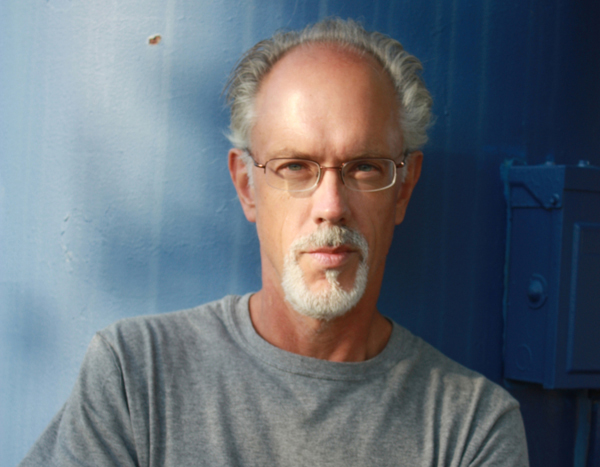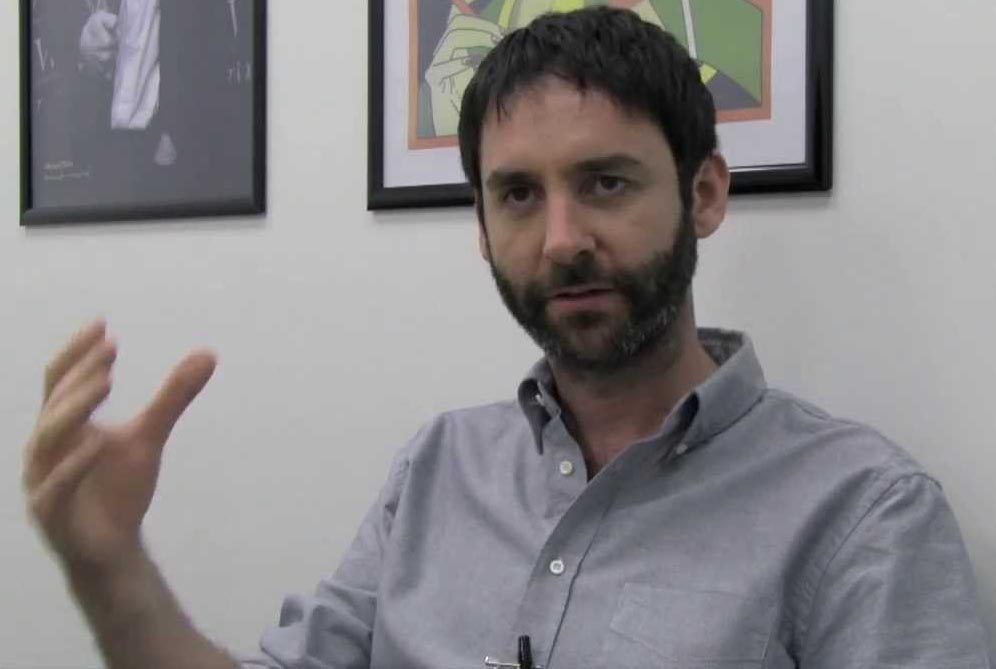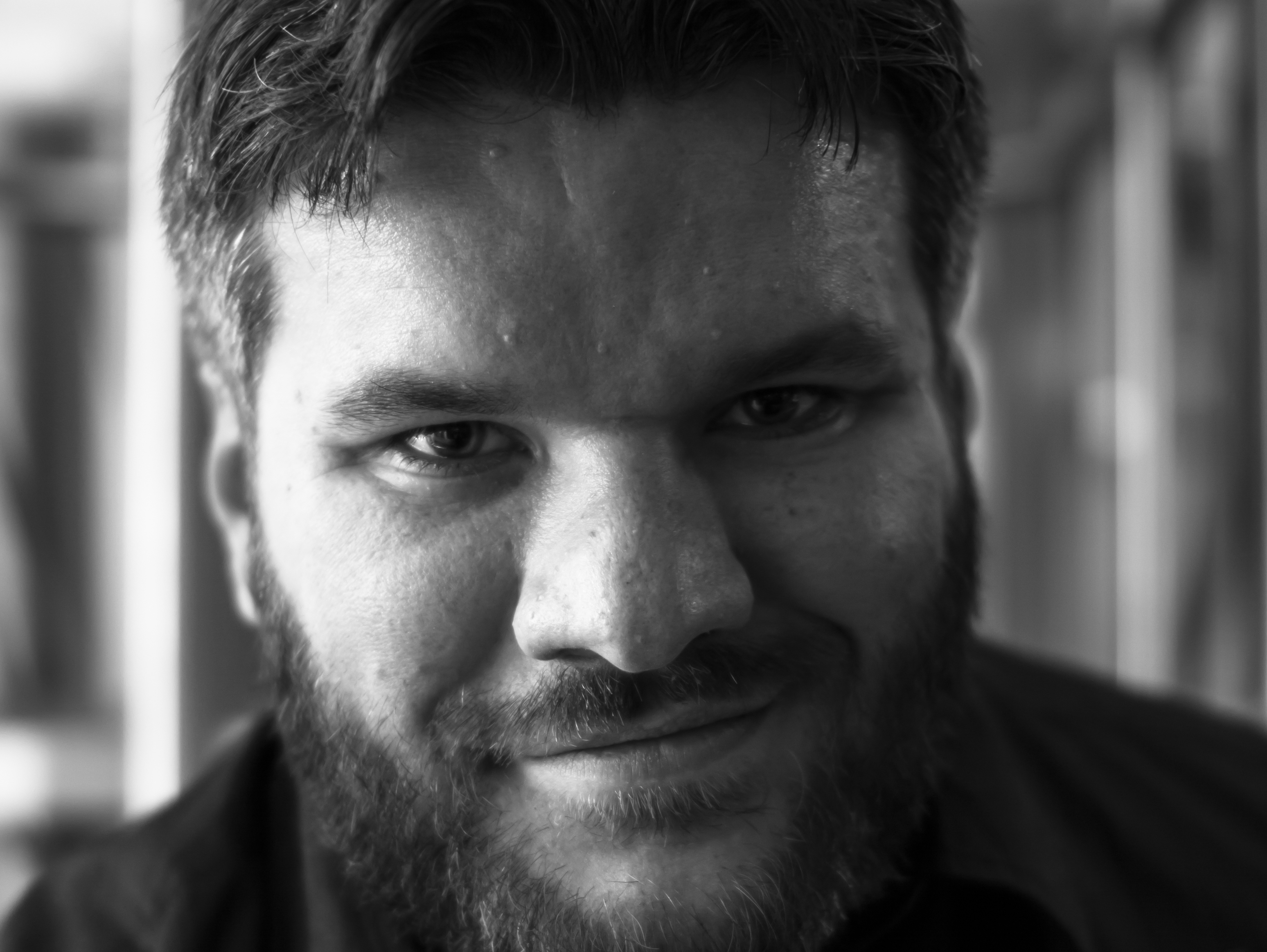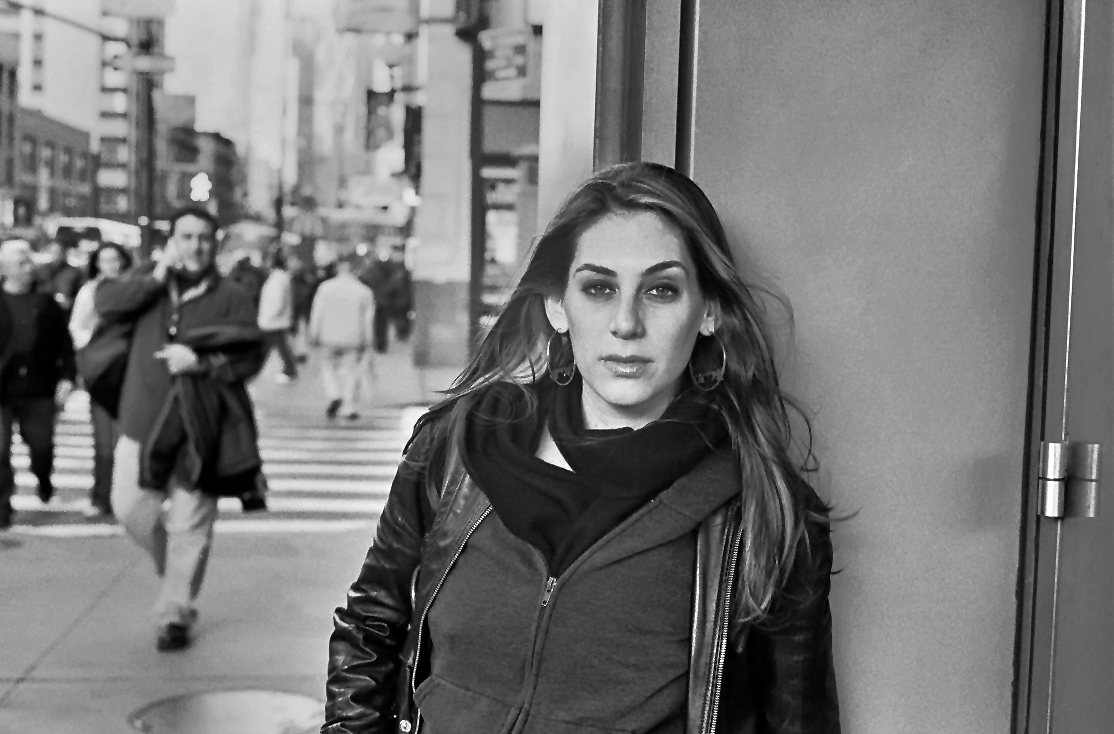Travis Nichols is most recently the author of The More You Ignore Me.
Listen: Play in new window | Download
Author: Travis Nichols
Subjects Discussed: Comparing smells in Washington DC and New York City, Off We Go Into the Wild Blue Yonder and The More You Ignore Me as epistolary novels, digital narcissism, the difficulties of writing novels with a wide swath of perspective, the benefits of coming from a deeply singular place, lathering yourself into a George Hamilton-like frenzy, the medium vs. the solitary voice, finding a way into the head of an abhorrent character, @AvoidComments, the remarkable amount of text generated by commenters, contending with trolls while working as editor at The Poetry Foundation, the freedom (and lack thereof) that comes with specific forms of writing, ruminating on why some people type so much online, when extreme behavior is rewarded, averted vision and the Pleiades, Jack Spicer’s After Lorca, “oppressed” people swimming in white privilege, the self-declared outcast, teachers who guided Nichols into considering the wider world, privilege and exclusion, writing about something insane and not taking it with you into your regular life, family members who disown you by email, Stephen Elliott’s The Adderall Diaries, the adventurous nature of Coffee House Press, readings where you bomb, qualities shared with theater and literature, laughter within the head, why the worst poems go over very well in front of bar audiences, craven desperation for approval, intense listening, the importance of pursuing the idea, Anselm Berrigan blanking his mind out by writing zeroes and ones, how to quiet a mind, working at Bailey Coy Books, not leaving the house, listening to singers who don’t sing in English, Princess Nicotine, Virginia Woolf’s Mrs. Dalloway, linguistic phrases and online formality, baroque language, Literature Subreddit, the sentiment held by certain online types that literature after World War I is worthless, War and Peace, Thomas Eakins, Clint Eastwood talking with a chair at the 2012 Republican National Convention, artsplaining diction, Charles Olson’s “Projective Verse,” seductive caesuras, balancing breaks and relentless formalism, willfully not giving the reader any space, online harassment of women, Anita Sarkeesian being harassed for speaking her mind, threats against Lindy West, early reaction to The More You Ignore Me, Alissa Nutting’s Tampa, women readers and literature, and whether it’s possible to tell the whole truth in fiction today.
EXCERPT FROM SHOW:
Nichols: With The More You Ignore Me, there were some very particular people that I was dealing with on an everyday basis because of my job at the Poetry Foundation. But they were essentially harmless. They were basically having fun with reputation and inventing characters. But I found myself trying to interact with a person. Because there was a rule of thumb that everyone would say: “Well, you wouldn’t say anything online that you wouldn’t say to someone’s face.” And I was like, “Oh, right. So you’re going to take that tack and you’re going to lose.” Because there’s all these other people who are saying everything they would never say. And, one, they’re having so much fun. Sort of. It was a really dark kind of fun. It seemed like it was painful. But there were hints of real inventiveness. There would be actual interesting thought. But then, of course, they couldn’t let it go. There’d be something like — I’m sure you’ve had this. The amount of text that’s being generated is remarkable. So that’s one thing. “God, that’s amazing. Some people can type that much.” But then also there are a number of ideas and some of them are almost there. And so, in probably a really shitty way, I thought, “Oh, well maybe I can look at that and try and make them into something that I can take as good.” Totally insulting to those people that they’re not doing it well and I would do it better, but I can own that. Because I think that they weren’t doing it very well. And then I thought, No one would ever actually want to read a 220 page book, which this novel is, unless it was doing something more than just being your standard comment. So I thought, There is a form. To get to what you’re asking, there’s a form there that allows for a lot more than many of the other forms that we have. Like I actually think that with a lot of poetry and with a lot of fiction, there’s not a lot of freedom to do this, that, or the other. That you get a lot more freedom.
I mean, if you look at slash fiction or you look at a lot of other kinds of online writing, they don’t give a fuck about what the form is. They have this amazing freedom. One, because the audience is there or not there. But also there’s some part of the frontal lobe that might be missing which just allows them to not check themselves. And I thought, “Oh, well, that could be really remarkable to try and go with.”
Correspondent: Or the Internet encourages them to speak in this unfiltered, raw, feral, atavistic at times mode.
Nichols: Right. And you’re rewarded by how extreme you can be. But then also the ultimate trolling is that you say something provocative to get a conversation going.
Correspondent: Some would call it a rise, as opposed to a dialogue.
Nichols: Right. Definitely. And the tragedy of this narrator in The More You Ignore Me is that he is sort of trying to do that, but he doesn’t allow anyone else to speak. So there’s no discussion that happens. And one of the things that I found interacting with other people like this — and also not just online; offline; everyone has these people in their lives — is that you can get worried. Like I have felt that I’m coming across with this person, my relationship with this person, I’m not being a good person. Because I’m getting this reaction. And it took me a long time to realize that it has absolutely nothing to do with me. That it has everything to do with this other person. They, in some ways, don’t even see me. I’m being steamrolled and just assimilated into this person’s psychosis a lot of times. And so one of the things I was trying to do with this narration is just to show that it starts out very much really about someone else. Could there be something that’s more about someone else than a wedding? I mean, that seems like that’s supposed to be about these people truly. And then, as it goes, those people are totally obliterated and then they’re gone by the end. It has nothing to do with them. And so that’s what I found over and over again. And now I see it. And I think, Right. This. You think that if there’s a comment on a post that’s about Obama’s judicial nominations or whatever, you’re like, maybe I’ll learn about the nominations. And you’re like, Oh no. I’m going to learn about this person and his, almost always…
Correspondent: Or you’re going to learn about some really terrible part of the national fabric. As we learned recently with the whole Zimmerman verdict. I wanted to go into this a little further by looking at both books again. The central voices in both of your novels, they latch upon a random target. In the first book, Off We Go Into the Wild Blue Yonder, it’s this woman named Luddie. She’s in this photograph, as you describe “black eyes, black hair, black dimples, black dress.” And in the second book, this most recent one, it’s a random wedding site and later the cooking website. They have little, if any, direct correlation to where these unnamed characters are in the present. And I’m wondering if this is your way of taking a look at the way we approach truth, either through letters or through a blog comment, that we’re likely to say the darkest and deepest things that are on our mind if we approach everything indirectly. Or was this just some sort of natural crazy salad? That any way you actually went into this, you would have this madness.
Nichols: Oh wow. That’s a great question. I definitely think that you or I get at a more accurate picture of the world indirectly. Maybe you know the answer to this. I remember reading this idea about the Pleiades. That you cannot look at them directly. You have to look at them sideways. Er, just glancing and that’s the only you’ll actually see them. Is that true?
Correspondent: Yeah. I believe so.
Nichols: Great! So that’s there. It’s like the Pleiades. Um, I’ve thought that often. And I was just about now to say that. And I thought, Maybe that’s not true. So great. At least between us, that’s the way it is. I mean, I think that there’s one thing that was really formative just in probably, I guess you could say, my adult writing life, when I got my shit together and really felt like I was finding a certain way in which the limited skills that I have are able to be used effectively in communicating what I want to audiences, is Jack Spicer’s, uh, poetry, but especially his book, After Lorca, in which he writes letters to Lorca, who’s dead, and talks about the idea of the programmatic letter of one poet writing to another in order to describe his poetics or her poetics, but also just as a way of — he calls it the wastage of the poem that’s the real thing. I think he probably knew that he was being funny because the letters; well, some are better than the poems. Sometimes.
Correspondent: He was also a wide outcast for a long while, which creates a connection with this particular narrator.
Nichols: Yeah. There’s a lot of Spicer in there. I mean, it’s almost like — it’s sort of camping up an idea of Spicer. Because he’s very sane. And I think there are moments of real clarity in The More You Ignore Me‘s narrator. But, you know, there’s a lot of stuff where you really start somewhere where you’re like, okay, I can really go along with that. And then by the end of even a sentence, you’re like, “No, that’s not where I would go with that.” And I think I was interested in the idea of this outcast, the writer as an outcast or the poet as an outcast. Or someone who wasn’t made for these times. And so then we seem to be a nation of outcasts in that way, where it seems that if you go on anything there is, there’s this sort of dominant narrative that shows up and then you have all these things under it, which is all these people disagreeing and fighting and saying, “This is just the mainstream media’s version of it.” There’s all these people who feel disaffected even and often most than these people who are often in power. There’s the backlash Republicans. People who are so swimming in white privilege that they’re not able to see that they are and they feel besieged by the fact that this isn’t the country that they feel like they grew up in or some idea that they have. That all these people that I’ve romanticized, being writers and poets and artists, who seem like they’re outside the mainstream, but then a lot of them when I look back on them, “Oh, well, they’re all straight white men. They’re all people who came from basically middle-class background.” A lot of them were really rich, it turns out. If you look at the history, especially of postwar American poetry, it’s arguably a history of Harvard undergrads. And so it becomes this very weird thing where people try to own their outsideness to an absurd degree. And so I wanted to sort of take that from A to Z with this narrator a little bit. Whereas I think in the first book, that narrator felt and was genuinely outside of things a little more. God, when I say that, it sounds ridiculous. That he would be more outside than this guy.
Correspondent: No. I think — let me see if we can steer the train on track here.
Nichols: Please do.
Correspondent: You’re saying that this narrator emerged in some sense from ruminating upon self-declared outcasts or people who were labeled outcasts. People like Jack Spicer, who came from the exact same place that every single other great mind came from. I’m wondering at what point this was a kind of — I don’t want to say ideological thrust, but in what way did this idea help to ground your narrator? The notion of outsider/insider. The notion that, for all of his claims of being banned or of wanting to go ahead and change the world, he was given the exact same privilege that everybody else did.
Nichols: Yeah. I mean I think that he’s also coming from this very — a little bit of this Southern Baptist idea or a certain kind of Christianity that really loves conflict. Because they see it as “Well, Jesus was persecuted. You must be doing something right.” Or Winston Churchill’s “You can judge me by my enemies.” And there’s a lot of that in literary culture. And a lot of that especially in the arts, who are like, “If you get people upset, then you must be doing something right.” And I agree to a point. There’s also like, “No, well, actually there are people who are genuinely disagreeing with you that maybe you should pay attention to that viewpoint and reconcile your behavior.” But instead it gets people to hunker down into the sense of self and entitlement. Like every genius was misunderstood at one time. Most likely. That doesn’t mean that every misunderstood person is a genius. So you have all these people who are taking all of the outside trappings of being an artist and claiming that that makes them an artist without any of the inside. And so this guy is not an artist. I mean, he’s a frustrated artist. But he can’t figure out where he went wrong. And he won’t admit really that it was him that went wrong. Like it’s something that he had all right. But it turns out that everybody else was wrong. And that is definitely not an unfamiliar place for me. Especially coming out of the poetry world, where you really feel like that the things that you value are not valued by the wider culture. And you can be in the little scene that celebrates itself and feel like, “Oh right. We all do really good…” Like Jack Spicer now. Everybody knows about him. So it’s not interesting anymore. But then as soon as you step out into any other kind of world, I mean, no one gives a shit at all. And not only that, but it’s not that they don’t care. It’s that they actively dislike what you like.
Correspondent: I think what you’re talking about here, especially with blog comments, is the fine line between being a genuine iconoclast who can in fact change her mind or adjust views and be engaged in a dialogue and someone who is a full-bore troll, who is incapable of that. Who has to erect some mythical status to justify why they continue to express themselves. And in this case, I’m curious if at any point during the writing of this, you saw this guy more in the first category. Where he was getting pushback from people who didn’t want to hear his perspective when it was legitimate. I mean, did you see him in that mould at any point? But it seems to me he clearly moves more into the second, the more custom troll. But I’m wondering if you considered the first.
The Bat Segundo Show #510: Travis Nichols (Download MP3)




